Motivational Music: Post-Rock (Moving Mountains, Gates, There Will Be Fireworks)
I know it’s been a while since I last shared a Motivational Music post, so here’s a new one for you to enjoy! After debuting this segment with a similar post, today’s topic features more music in one of my favorite genres: post-rock. This style of music, aside from being pleasant to listen to, tends to inspire quite a bit of my writing, so I hope you’ll find it motivational too! Enjoy!
Moving Mountains
Genre(s): Post-rock, Indie rock
Origin: Purchase, NY, USA
Writing Inspiration: Drama, poetry, romance
My Favorite Song(s): “Hands“, “Swing Set“, “Once Rendering“
Moving Mountains were an indie rock band from New York, active from 2005 to 2013. They’re well known for their versatile style of music, which generally combines emotional vocals with post-rock instrumentals. Because of this, I usually listen to them when I want to find inspiration for poetic and dramatic themes. Their last album, Moving Mountains, has been especially motivational for my romantic stories due to its ambient qualities, while older albums like their rock-oriented Waves provide inspiration for my darker poetry ideas. Moving Mountains have covered a relatively broad range in the indie rock spectrum, so if you enjoy this style of music, chances are they have at least a few songs that may inspire you.
Gates
Genre(s): Post-rock, Ambient, Indie rock
Origin: New Brunswick, NJ, USA
Writing Inspiration: Drama, tragedy, poetry
My Favorite Song(s): “Bloom“, “Not My Blood“, “Born Dead“, “They See Only Shadows“
Having emerged from New Jersey in 2011, Gates are a relatively new band on the post-rock scene. “Similar Artists” lists on popular music streaming sources tend to rank them very close to Moving Mountains, but they’re no mere copy for sure. While Moving Mountains most recently showed a softer quality to their music, Gates consistently implement more elements of rock in their songs, as is well evidenced in their newest album, Bloom & Breathe. With solid instrumentals and lyrics layered with emotional influences, Gates have been great inspiration for some of my more dramatic and tragic stories, as well as the occasional poem. Even when I’m not seeking creative inspiration, I enjoy getting lost in this music while taking a break from writing. Whether you’re trying to get inspired to create a dramatic piece of art or simply in the mood to sink back into some awesome music for a while, I highly recommend giving Gates a listen! You won’t regret it.
There Will Be Fireworks
Genre(s): Post-rock, Indie rock
Origin: Glasgow, Scotland
Writing Inspiration: Poetry, romance, drama
My Favorite Song(s): “South Street“, “River“, “Here Is Where“, “Says Aye“
There Will Be Fireworks were among the first bands I listened to after my best friend introduced me to post-rock. Much like the previous two bands, their music consists largely of emotional lyrics set to atmospheric instrumentals, which make for some hauntingly beautiful songs. Their newest album in particular, The Dark, Dark Bright, is a powerfully moving collection that has inspired me to write romantic poetry and stories. The vocals are by no means perfect, but I feel that just adds even more to the raw genuineness of the music, especially with such touching lyrics to go with it (I haven’t yet been able to listen through without at least getting choked up). TWBF are one of those bands I could listen to for hours, and if you appreciate genuine music that flows with every note and has the potential to touch your creative soul, I’m sure you’ll feel the same way!
I hope you’ve enjoyed reading about these amazing post-rock bands, and that they’ll inspire your writing as much as they’ve inspired mine! Thanks for reading/listening!
Reminder: if you really enjoy the music by the bands featured in this article, be sure to support them through their official music pages (links in the above album covers)! Help keep the indie scene thriving! Thank you!
Motivational Music: VOCALOID (Hatsune Miku, Megurine Luka, KAITO)
If you read my post about VOCALOID last week, you probably saw this coming. If you didn’t, I strongly recommend you take a quick look at that one in order to understand what I’m about to show you now. All caught up? Great, then let’s get started!
This may seem rather bizarre since my last Motivational Music post featured classical music, but I guess that just goes to show how diverse my musical taste really is, and more importantly, how many different styles can inspire my writing (and hopefully yours). Ready for a taste of music from Japan? Then allow me to dig just a little deeper into the aforementioned love of mine by sharing music that features the voices of my three favorite Vocaloids: Hatsune Miku, Megurine Luka and KAITO.
Hatsune Miku
Genre(s): Pop, Rock, Electronic
Origin: Tokyo, Japan (Fujita Saki, Miku’s voice provider)
Writing Inspiration: Humor, Drama, Romance
My Favorite Song(s): “World is Mine“, “Magnet” (duet with Megurine Luka), “Romeo and Cinderella“, “Rolling Girl“, “Tell Your World“, “Senbonzakura”
My Favorite Producer(s): ryo (Supercell), Hachi, kz (livetune), wowaka, Mitchie M
Popularly known as “everyone’s favorite digital diva”, Hatsune Miku has been a national celebrity in Japan for years and more recently seems to be making quite an impact in the Western world. She was designed to represent the future of music (reflected in her name, as “hatsu-ne-miku” means “first sound of the future”), and by now has likely been used to sing in every genre of music imaginable (and I mean every genre, from opera and Broadway to heavy metal and dubstep). I often think of Miku as the Jack-of-all-trades of the Vocaloids; she has a voice suited to all types of music, but she isn’t always the best choice of vocals for a given song (case in point, virtually every other popular Vocaloid has a cover song that’s arguably better than its corresponding Miku original: “A Single Red Leaf” as sung by Luka, “Electric Angel” as sung by Rin and Len, “Poetaster and Singing Dolls” as sung by Gakupo, “My True Self” as sung by Kaito and Meiko, etc.). That being said, the songs that are well-suited for her are awesome.
Because most of her popular songs are upbeat, I’ve found Miku to be great inspiration for cheerful themes and stories with happy endings. At the same time, she sings a variety of songs that make good inspiration for other types of writing, including romantic, melancholy, terrifying, and just plain bizarre. Even if all you need is motivation to create, Miku is very good at cheering her listeners on and making them feel special. The subject matter of her songs covers everything from the meaning of life to vegetable juice, so whatever you plan to write, chances are there’s a Hatsune Miku song out there that may inspire you!
For some awesome music featuring Miku’s vocals, I recommend looking up songs produced by ryo, Hachi, livetune, wowaka and Mitchie M. Of course, great Hatsune Miku songs are never in short supply, as evidenced by the fact that she dominates Nico Nico Douga’s Hall of Legend. What can I say? She’s clearly everyone’s favorite digital diva for a reason!
Megurine Luka
Genre(s): Ballad, Pop, Dance
Origin: Tokyo, Japan (Asakawa Yuu, Luka’s voice provider)
Writing Inspiration: Drama, Tragedy, Romance
My Favorite Song(s): “Witch Hunt“, “Toeto“, “Double Lariat“, “Circus Monster“, “Happy Synthesizer” (duet with GUMI)
My Favorite Producer(s): fatmanP, Yuyoyuppe, Suzuki-P, Circus-P
My other favorite female Vocaloid, Megurine Luka‘s most notable quality is her ability to sing in both Japanese and English (hence the name “meguri-ne”, which translates as “round sound”). Unlike Miku, Luka is best known within the VOCALOID fandom as a ballad singer for her low mature-sounding voice, and most producers famous for using her have her sing slow, sad songs. That isn’t to say she only excels in this genre, though; in fact, some of her biggest hits are the type of songs that make you want to get up and dance (would you believe me if I told you I know the whole choreography to this song?). Her soft soothing vocals also make her an excellent choice for songs with romantic themes, so she’s definitely a potential favorite of fans who enjoy those types of stories!
Luka has been great inspiration for some of my more dramatic writing, such as romance and tragedy. Some of her best ballads are written by fatmanP and Yuyoyuppe, while Circus-P is famous for writing original songs for her in English. Luka is a popular choice among various producers, though, so your best bet to find great music featuring her voice is to check out her music page on the VOCALOID wiki. She may not be as famous as Miku, but you’ll find that she too has a wide variety of great songs to enjoy!
KAITO
Genre(s): Folk, Electronic, Rock
Origin: Japan (Fuuga Naoto, Kaito’s voice provider)
Writing Inspiration: Romance, Humor, Poetry
My Favorite Song(s): “A Thousand-Year Solo“, “Tsugai Kogarashi” (duet with MEIKO), “Cantarella“, “What’s COLOR?“, “Crescent Moon”
My Favorite Producer(s): Shigotoshite-P, Shinjou-P, natsuP, Kurousa-P
Kaito (also known by his fan-given name Shion Kaito) is my favorite male Vocaloid. In a franchise that consists mostly of female voices, it’s refreshing to enjoy a lower register of vocals once in a while (plus a cute face to match, *wink*). Being one of only two Japanese voicebanks for the original VOCALOID engine (the other being Meiko), he is actually older than Miku and Luka (who were both released for VOCALOID2), but took considerably longer to become as popular. Due to his standing as a veteran Vocaloid, Kaito has a tendency to sound more “electronic” than his successors, but the best producers who use his voice know how to play this to their advantage. Because of this, many of Kaito’s best songs don’t try to hide the fact that he isn’t real, but instead use him to create a unique sound or theme that a human singer couldn’t pull off.
Most of the songs featuring Kaito at his best come in the form of traditional folk music or electronic tracks that showcase his original sound, though he’s also frequently used to sing rock (usually in the visual kei band VanaN’Ice with Kamui Gakupo and Kagamine Len). He’s also very good at singing duets with other Vocaloids; one of the biggest shipping wars I’ve ever come across in the fandom is about whether he makes a better couple with Miku (as in “Cendrillon“) or with Meiko (as in “A Pair of Wintry Winds“), and his cover of “Magnet” with Gakupo proves he has excellent chemistry with female and male Vocaloids alike. Since his V3 update, Kaito has become even more versatile, adding softer tones to his voice and even gaining the ability to sing in English, so good music sung by him isn’t likely to run out anytime soon!
Because of his range as a singer and a character, I find Kaito to be great inspiration for various types of writing, especially romance, humor and poetry. Most of my favorite songs featuring his voice were written by Shigotoshite-P (Japanese folk music), Shinjou-P (electronic) or natsuP (rock), so if you’re looking for some great Kaito songs, I highly recommend starting with music by any of these talented ladies. They really know how to make him shine!
Bonus: Want to hear a song performed by all three of these amazing Vocaloids? Try “ACUTE“; yes, it’s a tragic story about a love triangle, but the music is great!
I hope you’ve enjoyed learning about my three favorite Vocaloids, and that you have fun listening to the music I’ve shared with you! Thanks for reading/listening!
VOCALOID is a product of Yamaha. Hatsune Miku, Megurine Luka and KAITO belong to Crypton Future Media. All official artwork is displayed for illustrative purposes only. I own nothing!
Motivational Music: Classical (Mozart, Beethoven, Bach)
After recently spending hours listening to music on YouTube, I was inspired to write another Motivational Music post. Following the debut post about ambient/post-rock music, the genre featured in today’s topic is one that I’ve enjoyed since I can remember: classical. This type of music has been great inspiration for some of my writing in the past, especially poetry (since I like to think of classical music as poetry created with sound). I don’t want to go into “pretentious mode” and pretend to have a Music-major’s extensive knowledge of the genre, though, so for my first post on the subject, I’ll just scratch the surface with a few well-known Classical-era composers: Mozart, Beethoven and Bach.
Wolfgang Amadeus Mozart
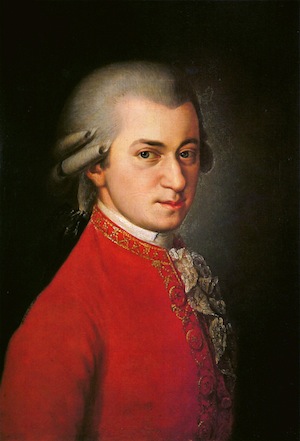
Wolfgang Amadeus Mozart (1756-1791)
Genre(s): Classical
Origin: Salzburg, Austria
Writing Inspiration: Poetry, humor
My Favorite Song(s): “Rondo Alla Turca” (Piano Sonata No. 11), “Symphony No. 40”
When thinking of classical music, one of the first names that comes to mind is Mozart, and with good reason. From piano sonatas to orchestra symphonies to operas, his music is wonderfully melodic and an absolute delight to listen to. Though I do enjoy the grander compositions like his 40th symphony, my favorite pieces of his are the lighter sonatas and arias, such as “Rondo Alla Turca” (the last movement of his 11th piano sonata, also known as the Turkish March) and the Queen of the Night aria (from the opera The Magic Flute).
What I find so enjoyable about Mozart’s music is the way it bounces, like the notes are floating on a breeze. Back when I took vocal lessons, I had to learn his piece “Das Veilchen” (“The Violet”), and though it was difficult to sing in German, I still enjoyed it for the bright melody. That’s why I find Mozart inspirational not just for poetry, but for humorous writing. Even when I’m not writing, I like to listen to his compositions just because they put me in a good mood. Whether it’s a grand symphony or a simple piano solo, there’s something about Mozart’s music that always brings a smile to my face.
Ludwig van Beethoven
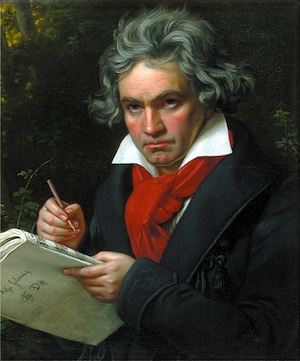
Ludwig van Beethoven (1770-1827)
Genre(s): Classical (Romantic era)
Origin: Bonn, Germany
Writing Inspiration: Poetry, drama, romance
My Favorite Song(s): “Symphony No. 5“, “Für Elise” (Bagatelle No. 25)
Yes, Beethoven is one of those composers whose music I could listen to all day. While I appreciate Mozart for his upbeat pieces, I enjoy Beethoven for his bold and powerful symphonies, which make excellent inspiration for dramatic writing. I sometimes listen to his fifth symphony when trying to get into a mindset for heavier scenes full of action or strong emotion (as demonstrated beautifully in this segment from Disney’s Fantasia 2000). Of course, the composer wasn’t limited to intense symphonies; one of his most famous pieces is the lovely piano bagatelle “Für Elise”, which contrasts with his more elaborate compositions for its soft and romantic melody.
Beethoven was an important figure in the transition between the Classical and Romantic eras of music, so it stands to reason that his pieces comprise a diversity of sources for writing inspiration, from poetry to drama to romance. Honestly, I find his music so inspiring that I’d recommend it not just to writers, but to artists of any type. If you appreciate music at all, you should have at least one composition by Beethoven in your music player. It’s definitely worth it.
Johann Sebastian Bach
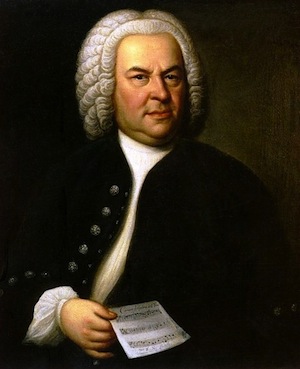
Johann Sebastian Bach (1685-1750)
Genre(s): Classical
Origin: Eisenach, Germany
Writing Inspiration: Poetry, drama
My Favorite Song(s): “Little Fugue (in G minor)“, Cello Suites
While Bach is admittedly not my favorite classical composer as far as concertos, I do enjoy his more subtle music. His cello suites are very beautiful and soothing (especially as performed by Yo-Yo Ma), and I find the slow melodies inspiring for writing drama and romance. My favorite piece, however, is definitely his “Little Fugue (in G minor)”; the music builds up as the different parts blend into each other to create a beautiful harmony, which I enjoy listening to while writing poetry or drama. Fun fact: this piece was adapted for the Dreamworks movie Shrek Forever After, where it plays as a club track (“Rumpel’s Party Palace“) in Rumpelstiltskin’s castle!
Though most of my favorite classical pieces are by Mozart and Beethoven, I find some of Bach’s music just as inspirational for certain forms of emotional writing. At the very least, I’d recommend his cello suites as background music for relaxing, as that can really help make the creative process easier!
Classical music is wonderful to listen to, as much for entertainment as for writing inspiration. Whether you write poetry or prose, comedies or tragedies, you can probably find inspiration in a good classical piece. I hope you enjoy the music I’ve shared with you today, and that you find in it the inspiration you need for your own art! Thanks for reading/listening!
Motivational Music: Ambient/Post-Rock (Brent Gnecco, Explosions in the Sky, Hammock)
OK, so I had another idea for an Inspiration subtopic for my blog. Aside from good books and talented authors, I’ve found that another major source of inspiration for my writing is music. Based on that thought, I decided to start a Motivational Music segment on my blog, and since there’s so much great music that I enjoy, each new post will feature a few related artists/songs at a time.
To start off this segment, here are a few of my favorite artists in the ambient and post-rock genres. Enjoy, and be sure to check out their music if you can!
Brent Gnecco
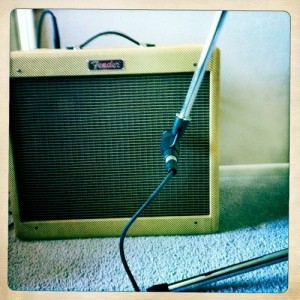 Genre(s): Ambient, Post-Rock
Genre(s): Ambient, Post-Rock
Origin: Los Angeles, CA, USA
Writing Inspiration: Fantasy, romance, tragedy
My Favorite Song(s): “We Are But Ghosts“, “Everything”
How could I start my Motivational Music posts with anyone else? This young man is someone very special to me, and his gift (and taste) in music has been inspiring me ever since we became friends. In fact, most of the artists to be featured on this blog were recommended to me by him, so if you discover new music here that you enjoy, you probably have him to thank for it.
Most of Brent’s music consists of what he calls “sad sounds”, strung together in beautiful melodies with a melancholy tone. His songs are usually played with an electric guitar and loop pedals to create echoing ambient sounds, though he’s also created some very cool rock and post-rock pieces (a few of which were written just for me!). The ethereal feel of his songs has helped me imagine some wonderful fantasy scenes for my writing, and his so-called “sad sounds” have sparked ideas for more tragic scenes in my romantic stories.
To hear Brent’s music, check out his YouTube channel and SoundCloud page. I recommend starting with “We Are But Ghosts“. Enjoy!
Explosions in the Sky
Genre(s): Post-Rock, Instrumental
Origin: Austin, TX, USA
Writing Inspiration: Romance, tragedy, poetry
My Favorite Song(s): “Your Hand in Mine” (The Earth Is Not A Cold Dead Place, 2003)
If I remember correctly, Explosions in the Sky is the first post-rock band I ever listened to in my life. They’re also the first band I ever saw live in concert, and what an amazing experience it was! This band is popular for creating some very beautiful and emotional music, almost all of which is instrumental (guitars and drums). Because their songs are so moving and don’t usually have lyrics, I like to listen to them when trying to find inspiration for purely emotional writing, such as poetry and certain scenes involving characters of a more artistic nature. They’re also great to listen to just for relaxing and getting lost in thought once in a while.
Hammock
Genre(s): Ambient, Post-Rock
Origin: Nashville, TN, USA
Writing Inspiration: Fantasy, romance, tragedy
My Favorite Song(s): “Ten Thousand Years Won’t Save Your Life” (Departure Songs, 2012)
Hammock is probably one of my favorite bands in the ambient/post-rock genres. Like Explosions in the Sky, their music is comprised largely of instrumental sounds, mostly guitar combined with electronic beats. I tend to find inspiration in their music for poetic and fantasy pieces, as their unique sound often has a soft echoing style to it. I especially love the album Departure Songs (2012), which focuses on themes of loss and consists of beautiful songs with an ethereal vibe, making it great inspiration for writing of a more melancholy type.
These are just a few of the ambient/post-rock artists that have inspired me with their music. There will be more featured on my blog in the future, so if you enjoy finding inspiration in this art as much as I do, look forward to more posts in my Motivational Music segment! Thanks for reading/listening!

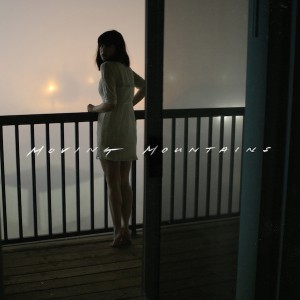
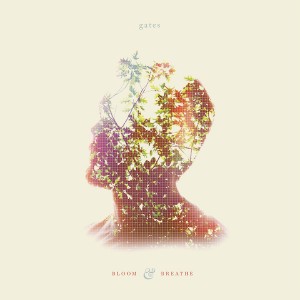
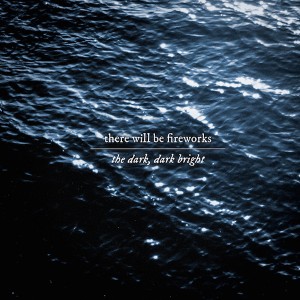
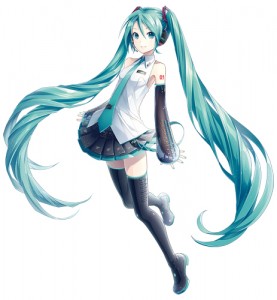

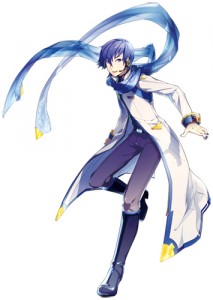
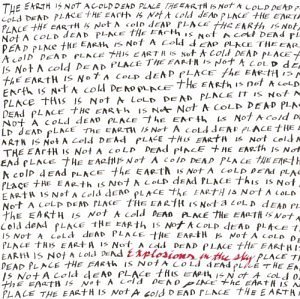
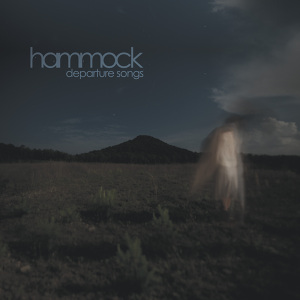

Recent Comments